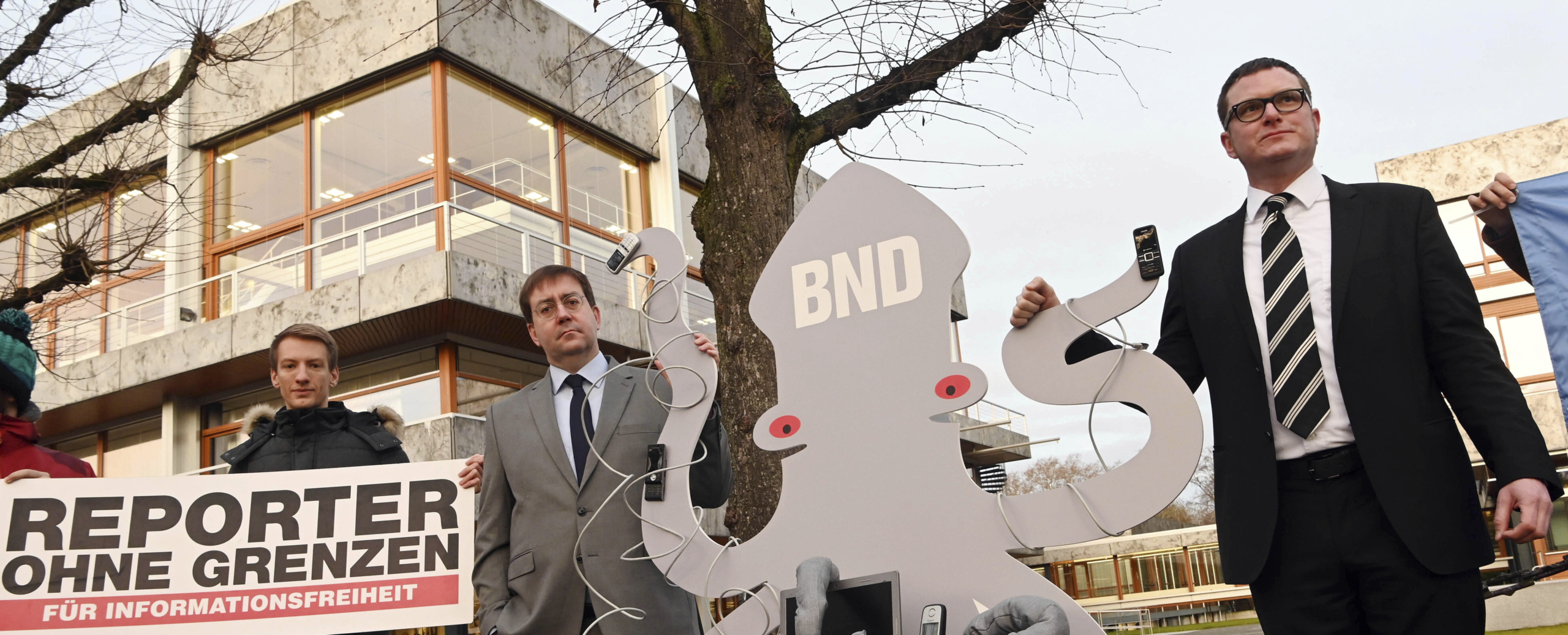Sign up for the daily CJR newsletter.
In 1956, with the Cold War underway and the North Atlantic Treaty Organization recently established, West Germany formed a federal intelligence agency, the Bundesnachrichtendienst, known as the BND. Its primary function was to confer with foreign governments, particularly the United States, about whatever information it could gather on the Red Army, the military force of the Russian Soviet Federative Socialist Republic. When the BND was created, it lacked a legal framework. In 1968, a law was passed, affirming that, to promote national security, the agency was free to wiretap communication as long as it didn’t violate German citizens’ right to privacy. That law has since been expanded—in 1990, 2001, and, most recently, 2017, when the government formally approved warrantless surveillance of foreigners. And with that, after years of gathering intelligence without much scrutiny, the BND suddenly found itself under the spotlight: six international journalists, alarmed about the implications for their work, brought a complaint against the BND in Germany’s constitutional court.
The group, which includes prominent investigative reporters such as Khadija Ismajilova, of Azerbaijan; Blaz Zgaga, of Slovenia; and Raul Olmos, of Mexico, sued at the end of 2017, with the support of the German journalists’ union and nongovernmental organizations including Reporters Without Borders. “The existing rules around surveillance are so broad that they in fact allow the BND a lot of leeway in the surveillance of internet communication,” Bijan Moini, a lawyer representing the complainants, says. Journalists in Germany enjoy legal protection of their right to private communication, but foreign reporters’ emails, text messages, and calls with sources are liable to be caught in the net of the BND’s surveillance overseas. In January, over a two-day public hearing at the German constitutional court, in Karlsruhe, members of the international press made their case against the BND’s policy. Judges are expected to announce a verdict in April.
RECENTLY: Governments of the world just ramped up spying on reporters
The BND’s work is defined as “strategic” surveillance, or surveillance that aims to gather as much information as possible but that doesn’t necessarily lead to action on leads. None of the journalists involved in the lawsuit have, as far as they’re aware, been surveilled by the BND, but its mandate makes it likely that they will be at some point. In 2017, the German magazine Der Spiegel obtained documents revealing that the BND had consistently spied on media organizations including the BBC, Reuters, and the New York Times. Der Spiegel reported that, since 1999, the BND had been tracking about fifty phone numbers, fax numbers, and email addresses belonging to journalists around the world.
Awareness of the BND’s practices peaked in 2013, when Edward Snowden, the American whistleblower, revealed, among other things, that the BND was involved in unregulated surveillance programs and that it had cooperated with the National Security Agency to spy on targets in Europe. His leaks ignited a national debate about surveillance that prompted German lawmakers to promise more regulation—hence the 2017 law. The rationale, German officials said, was that the BND needed the ability to monitor international terrorism, proliferation of weapons, and international organized crime. But the implications for press freedom—and the protection of sources—became apparent immediately.
“It was shocking to us,” Daniel Moßbrucker, a German journalist who helped Reporters Without Borders file the lawsuit, says. Moßbrucker coordinated with members of the press and their newsrooms to sign up complainants. Many more sought to express their outrage. “We had thirty to forty international organizations protesting the law, which is quite outstanding,” Moßbrucker says.
From the start, the lawsuit aimed to impress upon the German court that the reporters most at risk under BND surveillance are those who come from countries unfriendly to members of the press. Zgaga, for one, wrote about Slovenian arms sales to Croatia and Bosnia in the nineties, when an embargo was imposed by the United Nations; after his story was published, he found himself subjected to spying and threats by Slovenian officials. He accepted it then, as a regrettable consequence of his chosen profession. But in 2017, he moved to Leipzig as part of a program for journalists in danger, run by the European Centre for Press and Media Freedom. In the case against the BND, he saw an opportunity to do something about government intimidation of reporters. “We are living in such dark times that every journalist should expect with very high possibility that he is being surveilled—not by one, but by many countries,” he says.
The lawsuit also called attention to the stakes for Germans. “Journalists’ source protection becomes collateral damage,” Christian Mihr, director of Reporters Without Borders Germany, says. And German reporters, collaborating on projects with foreign colleagues, would be subject to surveillance, too. Take the example of Ismajilova, Mihr points out: She helped uncover the Azerbaijani Laundromat, a scheme in which members of the Azeri elite used shell companies to pay off European politicians and engage in other illicit activities. Ismajilova’s newsroom, the Organized Crime and Corruption Reporting Project, worked on the story with a number of international news organizations, including the Süddeutsche Zeitung, a German national newspaper. “She is not protected by the law, and she has been participating in transnational projects, which, from what we know, clearly are of interest to the BND,” Mihr says. Any BND surveillance of Ismajilova’s communication with German colleagues could be on file—in violation of Germans’ right to privacy.
The fact that the journalists’ case was heard by the court at all—last year, just two lawsuits received hearings, out of thousands filed—gives the complainants reason for optimism. Besides, they’re not opposed to all spying—they just don’t want it to undermine journalism. “It was pretty clear that the court understood the problem,” Mihr says. “What we want is to adapt intelligence surveillance to the digital age.”
ICYMI: I’m not under quarantine. Am I?
Has America ever needed a media defender more than now? Help us by joining CJR today.







